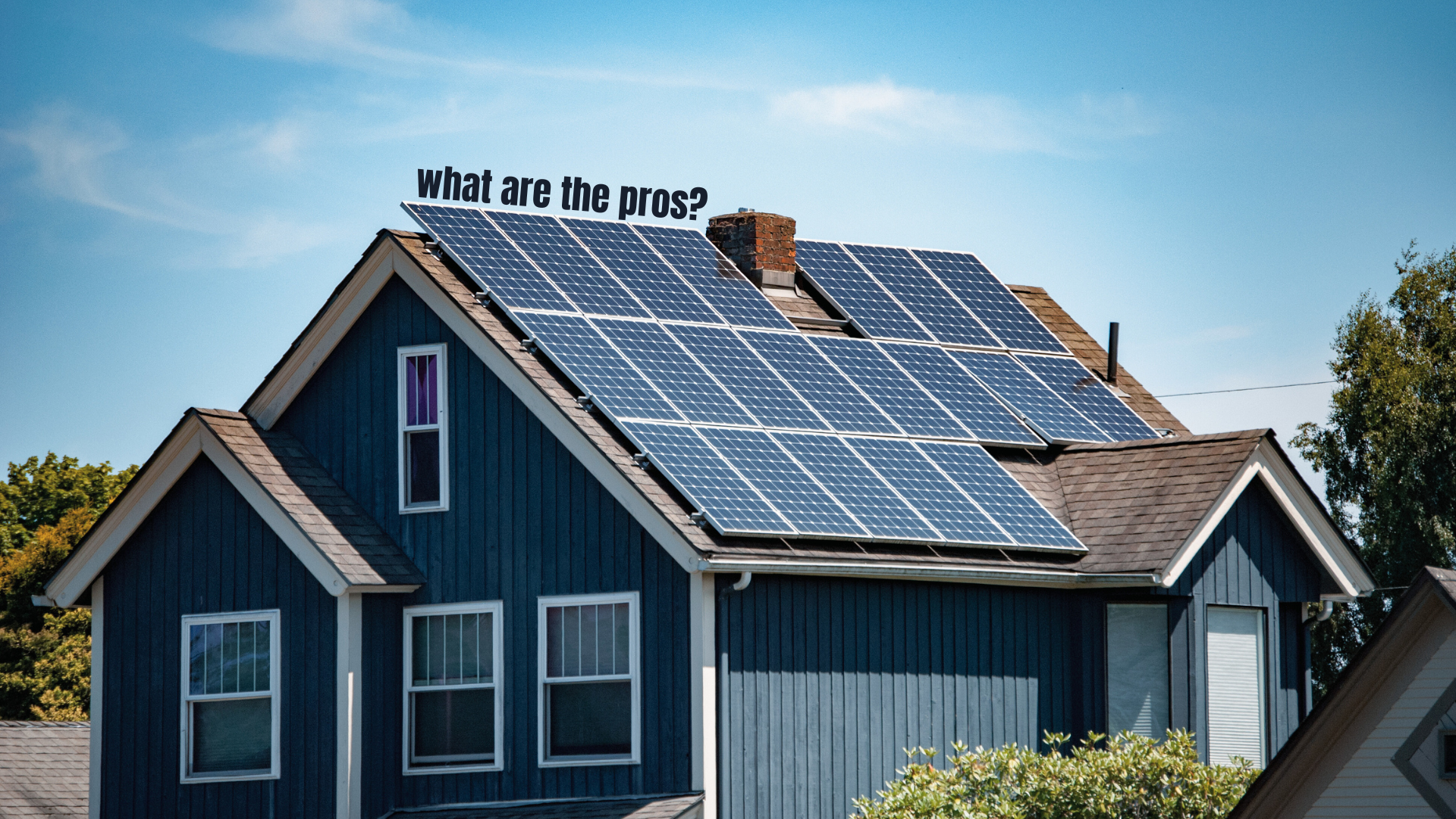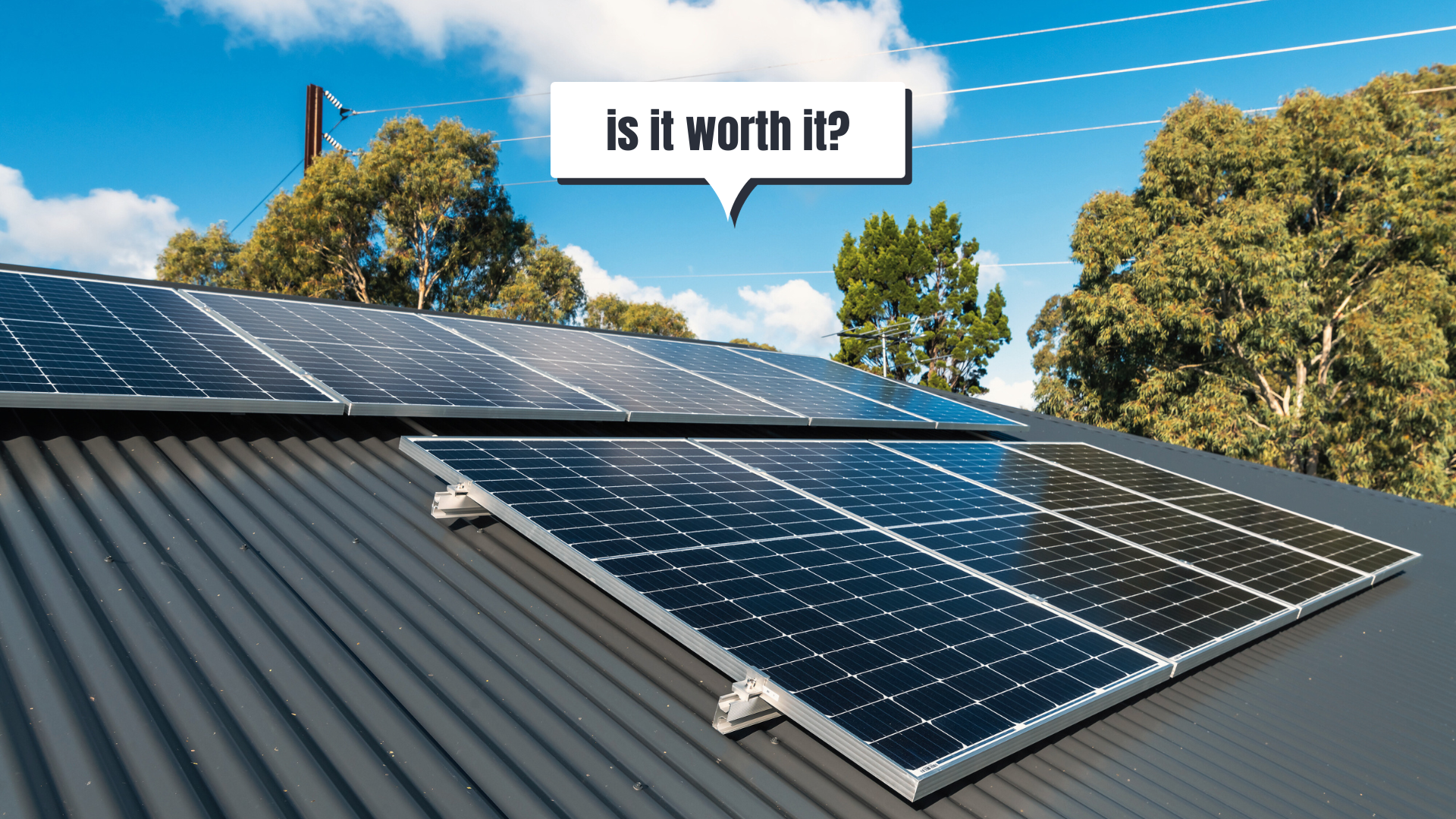For a long time, solar panels have been considered a favorable green energy alternative for residential and commercial properties. This renewable energy source uses solar panels, an inverter, and batteries to harvest sunlight and convert it to electricity. But are home solar panels really worth it?
Installing home solar panels can be costly, especially if you opt for a high-quality setup installed by professionals. Despite the initial outlay, solar panels add value to your home and offer payback over time as they reduce your reliance on the grid.
Even though home solar panels pay for themselves over time, many homeowners find the initial outlay too costly. For example, only 8% of United States homes have solar panels. To bridge the financial gap, some governments and utilities offer a financial incentive or payment plan to encourage homeowners to install solar panels.
How Do Solar Panels Work?
According to the United States Department of Energy, the amount of sunlight that hits the earth's surface in one-and-a-half hours provides enough electricity to power the world for an entire year. While there are a few ways to harvest this sunlight, homeowners use solar panels.
Solar panels contain photovoltaic (PV) cells that absorb the sun's electromagnetic energy. This energy then creates an electrical charge within each PV cell, which causes an electrical flow. The electricity generated from the PV cells is directed to an inverter and battery system, where it is either spent or stored. (Related article: How Do Home Solar Panels Work? A Comprehensive Guide)
The Benefits of Home Solar Panels
To ascertain if home solar panels are worth it, one must look at their benefits – financially and otherwise. Below are four of the potential benefits homeowners can expect when installing solar panels:

Install Solar Panels To Lower Your Electricity Bills.
Since solar panels generate electricity from sunlight, homeowners needn't rely as heavily (or at all) on the grid and the local electricity supplier. You can reduce your monthly electricity bills using less electricity from the local provider. The extent of savings depends on the solar system's size and the amount of sunlight the panels get.
Investigate If You Will Get A Financial Incentive.
Many governments and utilities offer financial incentives to homeowners who install solar panels. They do this to encourage you to install solar panels to reduce greenhouse emissions, lower your carbon footprint, and decrease the total demand on the grid.
Financial incentives for homeowners installing home solar panels include tax credits, rebates, and net metering programs. Such incentives can significantly reduce the upfront cost of installing solar panels, which can cost between $17,000 and $25,000.
Enjoy Energy Independence.
Solar panels can provide a degree of energy independence depending on the size and setup. This is especially helpful during power outages, as long as the solar system has battery storage or a backup generator in place.
Minimize Your Environmental Impact.
Solar power is a readily available, renewable, and clean energy source. Homeowners who choose to install it can minimize their carbon footprint and do their part in combatting climate change.
Increase Your Home's Value.
Installing a solar power system into your home helps to boost your return on investment (ROI) and make your home more attractive to potential buyers. The reason for this is two-fold: You've increased the home's resale value and provided a system where the new owners needn't pay as much on electricity bills.
The Costs and Considerations of Home Solar Panels
Now that we know the benefits of home solar panels let's look at the cost and considerations of installing them in your home.
Consider The Hefty Upfront Costs.
The initial cost of purchasing and installing home solar panels can be substantial (between $17,000 and $25,000, on average). The most significant portion of the total cost can be attributed to soft costs, which are non-hardware related. Soft costs include getting permits, finance, and professional installation.
Thankfully, it is becoming less financially burdensome for homeowners to install solar due to significant investments in the industry. Many financial providers offer various financing options, such as solar loans and leases, which can make solar more affordable. (Related article: The Cost of Solar Panels in Florida: Is it Worth it?)
Plan Regular System Maintenance.
Home solar panels require little maintenance if they've been strategically installed. However, they may need occasional cleaning and routine inspections of the solar panels, inverter, and other components. Suppose you, as a homeowner, can't do this maintenance and inspection. In that case, you'd need a professional, which can add to the overall cost.
Compare Solar Panel Efficiencies.
The efficiency of solar panels varies between manufacturers. A solar panel setup's efficiency will impact the amount of energy it produces. Generally, higher-efficiency solar panels tend to be more expensive but can maximize the energy production from available sunlight.
Assess The Location-Specific Factors.
Before purchasing home solar panels, it is wise to ascertain if your home's average sunlight is enough for sufficient solar energy production. Areas with abundant sunshine and high electricity rates offer the most significant potential savings.
Consider The Payback Period.
Given the initial outlay of purchasing and installing home solar panels, it may take several years to recoup your initial investment through energy savings. The payback period will depend on the system's size, efficiency, and location.
How to Assess if Solar Power is Worth It
To determine if home solar panels are worth the investment, it's advisable to conduct a thorough assessment based on your specific circumstances.
Here are five pointers to guide you:

Calculate The Return On Investment (ROI).
Start by estimating the potential energy savings and incentives over the home solar panel system's lifespan. Then, subtract the upfront costs, including all soft costs. A shorter payback period with a higher ROI makes solar panels a financially attractive option.
Evaluate Your Long-Term Goals.
Consider how long you plan to stay in your home. If you plan to stay long-term, the solar panels should "earn their keep" over a few years. However, if you sell sooner, installing solar panels will increase your home's value.
Investigate The Solar Panel Lifespan.
Do some investigations regarding the solar panels' lifespan and assess whether the system will continue to provide benefits for this span. Excellent-quality solar panels should have a lifespan of about 25 to 30 years or more.
Check Out Financing Options And Subsidies.
Explore your financing options to make solar panels more affordable. Some states or utilities offer incentives and subsidies to homeowners. Alternatively, solar loans, leases, and solar power purchase agreements (SPPAs) can lower your upfront costs and increase your returns.
Consult With Professionals.
Finally, speak to local solar installers and financial advisers for guidance and personalized estimates. You can also ask the solar providers for contactable references and ask online forums for guidance from other homeowners who have installed home solar panels.
Final Thoughts
Apart from the environmental advantages, installing home solar panels has many benefits. Homeowners should conduct thorough research before installing solar panels to determine if this renewable energy solution is worth it for their personal circumstances. More often than not, solar panels will pay for themselves over time. (Related article: Is Solar Worth it For Your Home in Texas? (2023 Homeowner’s Guide))

